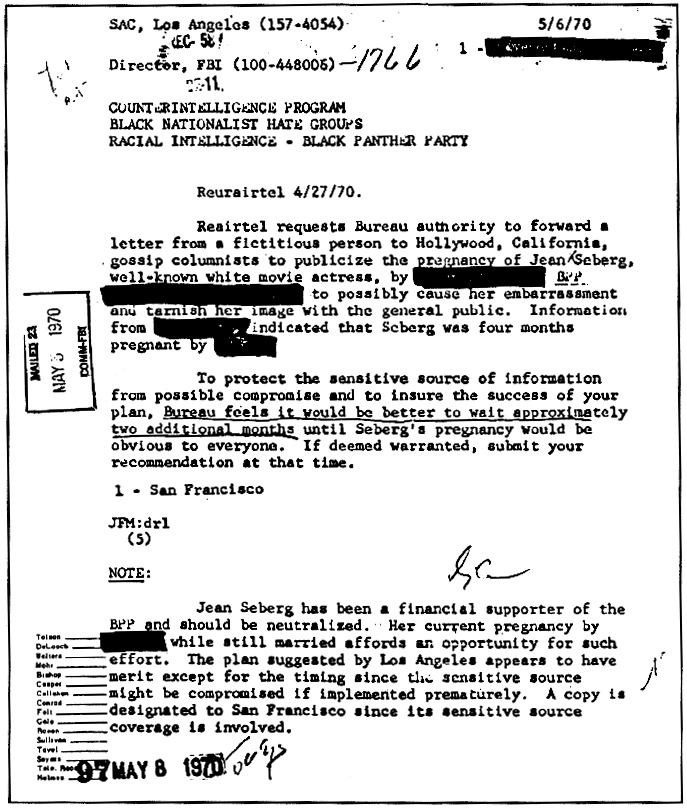“Heavy Radicals” is a history
of the Revolutionary Communist Party (RCP), a small but relatively well known
Maoist group in the United States. It follows RCP's fortunes from its inception
as the Bay Area Revolutionary Union in 1968 to its transformation into a
bizarre cult around 1980. One of the authors, Aaron J Leonard, is an ex-member
of the group. A large portion of “Heavy Radicals” deals with FBI infiltration
and disruption of the RCP and its front organizations. The authors have filed a
Freedom of Information Act request and obtained access to previously classified
FBI documents. The RCP was subject to a HUAC-style congressional investigation
in 1972. The public report from the hearings contains additional information of
interest. The authors have interviewed former members of the RCP, but the most
important ones are either deceased or declined to participate. The current
leader of the party, Bob Avakian, also refused to grant an interview. Thus,
"Heavy Radicals" is to a large extent based on written sources.
A few things stand out. One is that RCP's real founder was Leibel Bergman, not the notorious Avakian. Bergman was an old time member of the Communist Party who had sided with Mao's China during the Sino-Soviet split. He actually lived in China during a period. Avakian and most other RCP activists, by contrast, came from the New Left. After a devastating split in 1978, Avakian more or less turned Bergman into a non-person, while creating a personality cult around himself. It's also interesting to note that RCP changed its political positions and orientation several times. Avakian's post-1978 RCP, the RCP most outside observers are familiar with, is very different from Bergman's pre-1978 organization.
Before the Bergman-Avakian split, RCP worked in the unions (including the mineworkers' union in West Virginia), played an important role in the US-China People's Friendship Association and Vietnam Veterans Against the War, seriously attempted to win official recognition by Mao's China, and repudiated the worst forms of adventurism. A pro-terrorist faction headed by Bruce Franklin was expelled. Franklin, a tenured professor, had called for guerilla warfare with armed bands hiding in the New York metro! RCP also repudiated the Weathermen.
After the split, Avakian (a supporter of the “Gang of Four” in China) dramatically changed the group's orientation. Students and the underclass were seen as more important than unionized workers. The RCP staged provocative protest marches and deliberately sought confrontation with the police. The whole thing ended badly, with Avakian himself fleeing to France in order to escape a possible indictment in the United States. The group also became notorious for its provocative flag burnings (illegal at the time). Many members who had sided with Avakian against Bergman in 1978 dropped out of the group after this anarchistic turn. The book doesn't mention the RCP's subsequent affiliation to the RIM, an international organization dominated by the ultra-violent Peruvian Maoist guerilla Sendero Luminoso. The RCP still exist, but few people take it seriously today (not even as a threat). One reason is their zany elevation of Chairman Bob Avakian to a status superior to even Mao!
I've read quite a lot of RCP-related material (I've even seen a Stalin anthology edited by Franklin at a Swedish library!), so most of the political information in “Heavy Radicals” wasn't entirely new to me, although it fleshed out the details. What was new was the information on FBI's efforts to disrupt the group. I didn't know that the U.S. Congress opened an official investigation into the RCP. Leonard and Gallagher claim that President Nixon himself was briefed on the activities of Bergman, who was considered to be a dangerous secret agent of China!
“Heavy Radicals: The FBI's secret war on America's Maoists” is marred by extremely sloppy editing and perhaps tends to overstate RCP's real political influence. It's also obvious that Brother Leonard still has a kind of semi- or quasi-Maoist perspective. That being said, the book is probably a must for those interested in the far left and (perhaps) the history of the FBI. I will therefore give these "red papers" three stars.

No comments:
Post a Comment